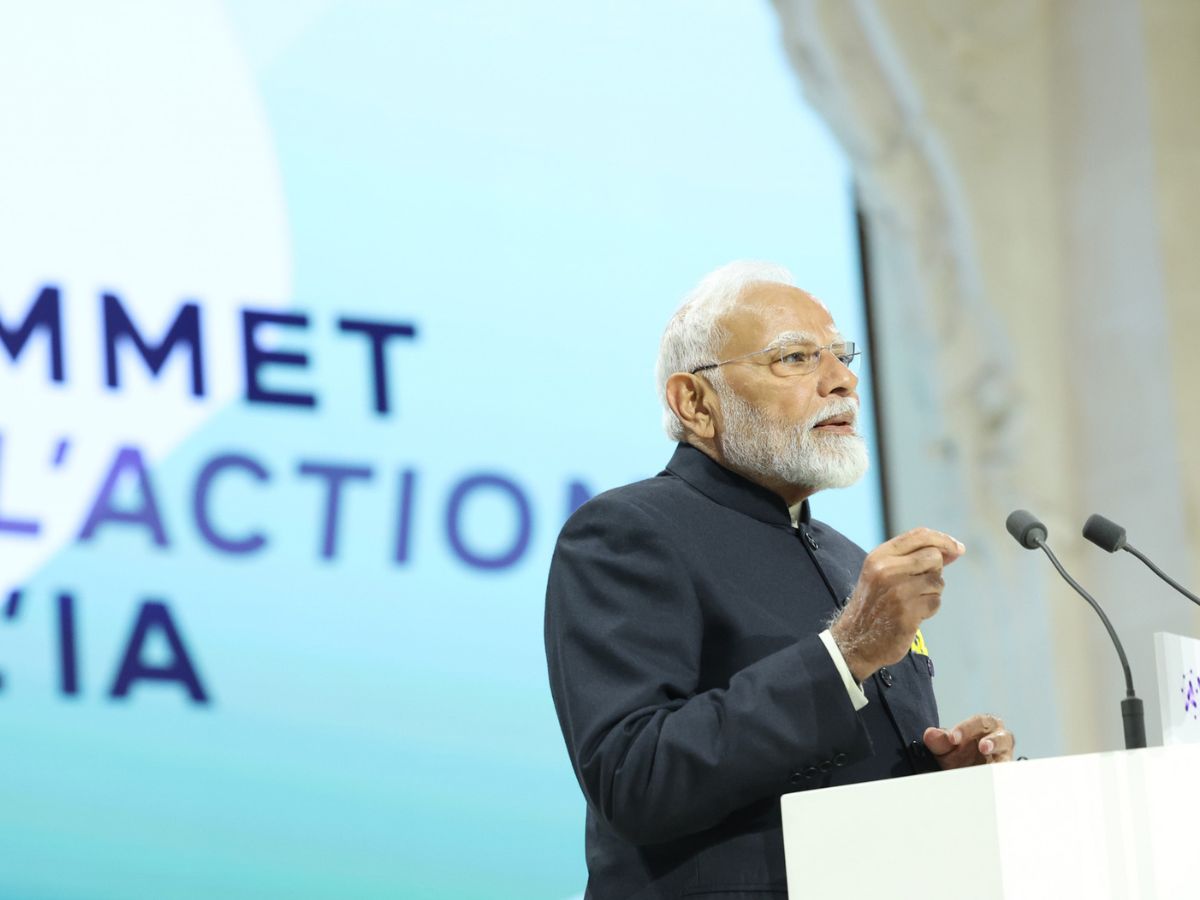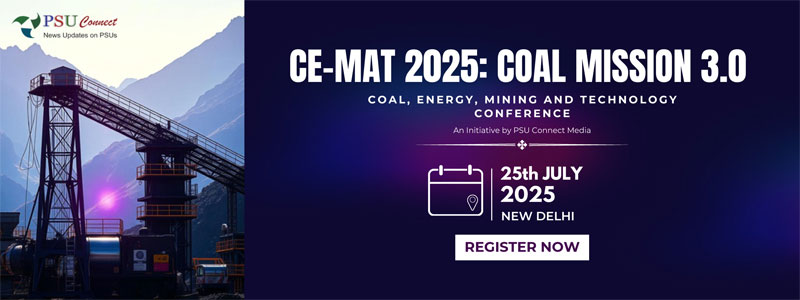PM Modi at AI Action Summit Paris said Loss of jobs is AI’s most feared disruption

New Delhi: On February 11, 2025, Prime Minister Shri Narendra Modi delivered an impactful opening address at the AI Action Summit in Paris, where he highlighted the transformative potential of Artificial Intelligence (AI) while addressing key challenges, risks, and the need for collaborative governance.
The Power and Pitfalls of AI
In his opening remarks, Prime Minister Modi drew attention to the transformative potential of AI, illustrating both its vast benefits and inherent challenges. He began with a simple experiment to highlight AI's current capabilities and biases. By explaining how an AI app can easily decode a medical report for an individual but falter in drawing an image of someone using their left hand, Modi illustrated that AI, while powerful, can sometimes carry biases based on the data it is trained on. This real-world example underscored the need for careful thought and attention to these issues as AI continues to evolve.
Acknowledging the rapid development of AI, the Prime Minister stressed that this technology is reshaping key aspects of global life — from governance and economies to security and societal norms. However, he also pointed out that AI's rapid scale and adoption require global cooperation to establish governance frameworks that promote innovation, manage risks, and foster trust.
Global Cooperation and Governance
Prime Minister Modi emphasized that AI’s development and adoption transcend national borders, calling for collective global efforts in establishing governance that upholds shared values and ensures equitable access to its benefits. He expressed his gratitude to French President Macron for hosting the summit, noting that AI is a technology that requires the collaboration of all nations, particularly when addressing its governance.
Governance, Modi explained, is not only about mitigating risks but also about fostering innovation for the global good. This, he believes, must be pursued with a focus on ensuring access to technology, especially in the Global South, where challenges like a lack of compute power, talent, data, and financial resources still persist.
Addressing the AI Action Summit in Paris. https://t.co/l9VUC88Cc8
— Narendra Modi (@narendramodi) February 11, 2025
AI for Sustainable Development
The Prime Minister highlighted AI’s immense potential to transform sectors like health, education, and agriculture, thus accelerating progress toward achieving the United Nations’ Sustainable Development Goals (SDGs). However, he called for a concerted effort to pool resources, share talent, and build open-source systems that promote trust, transparency, and inclusivity.
In particular, Modi emphasized the importance of eliminating biases from AI data sets and making technology accessible to all. To maximize its global impact, AI must be used in ways that are people-centric and mindful of challenges like cybersecurity, misinformation, and the spread of deepfakes. Further, technology must be adaptable to local ecosystems for it to be both effective and useful.
AI’s Impact on Jobs and Employment
One of the most pressing concerns surrounding AI is its potential to disrupt jobs and industries. However, Prime Minister Modi reassured the audience that, throughout history, technology has not led to the disappearance of work but rather to the evolution of job types. He urged countries to focus on upskilling and reskilling their populations to adapt to an AI-driven future.
Sustainability in AI
Recognizing the high energy demands of AI, Modi stressed the need for sustainable AI practices, which include harnessing green power and making AI models more efficient in terms of size, data consumption, and resource requirements. Drawing a parallel with the human brain’s ability to perform complex tasks while using far less energy than a lightbulb, he underscored the importance of building energy-efficient AI systems.
India's collaboration with France through the International Solar Alliance was cited as a model of how nations can come together for sustainable energy solutions, marking an essential step in advancing AI while maintaining a focus on environmental sustainability.
India’s AI Progress and Commitment
Prime Minister Modi went on to showcase India’s strides in AI, including its Digital Public Infrastructure, which serves 1.4 billion people at a low cost. This infrastructure is built on open, accessible networks, and has transformed sectors like governance, healthcare, and education. He pointed to India’s successful implementation of data protection policies through the Data Empowerment and Protection Architecture, and its leadership in AI adoption during India’s G20 Presidency.
India, Modi declared, is building AI applications for public good and has one of the world’s largest pools of AI talent. Furthermore, India is developing its own large language model, reflecting its diversity, and fostering a unique public-private partnership model that ensures affordable access to compute power for start-ups and researchers.
Modi emphasized that India is ready to share its experiences and expertise with the world to ensure AI’s benefits reach all, and are harnessed responsibly and equitably.
The Future of AI: Human Responsibility
In conclusion, Prime Minister Modi reiterated that while AI is set to shape the future of humanity, it is crucial to remember that no machine can dictate our collective destiny. Humans, guided by a sense of responsibility, hold the key to shaping a future where AI serves the global good and benefits all sectors of society.
The address called for all nations to come together, fostering cooperation, inclusivity, and shared values to ensure that AI is deployed in ways that benefit humanity while managing its risks and challenges.
Join PSU Connect on WhatsApp now for quick updates! Whatsapp Channel
